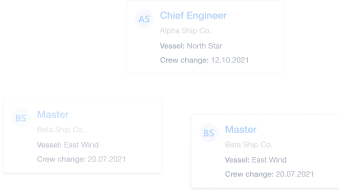Studies have shown that there are three psychological demands when it comes to establishing outstanding workplaces and high-performing teams.
What are these essential demands? Apparently, your employees would want autonomy, competence, and relatedness. When they feel psychologically satisfied, they become happier, healthier, and even more productive at work.
Among the three demands, relatedness is something organizations find challenging to foster.
The need to feel connected to the company’s goals and their workmates, indeed, that’s something talented employees can do, right?
Well, it’s one thing to find top talents, but encouraging them to get along with one another? That’s another hurdle.
And you’ll have to overcome it because teams that do collaborate prove to be highly functioning and thriving.
Why is relatedness important?
The organization gains in a number of ways when the demand for relatedness is satisfied at work.
More information sharing, better general communication, better collaborations, and more opportunities for synergy are all made possible by the increased trust. Productivity gains and organizational dedication come next.
When your team collaborates, you’re able to utilize the combined talents and brain power of everyone, not just a selected few.
Collaboration in maritime recruitment
Your star team is made up of a variety of people with skill sets that get increasingly specialized the more you expand. And this diversity is why collaboration as a practice has become more critical than ever.
Collaboration may come off as a bit of a corporate buzzword, but it’s not an empty cliché. On the contrary, it is what makes teamwork successful in the workplace.
In the maritime industry, collaboration always happens.
Take, for example, a ship that’s about to change its crew. On the ground, the crew managers and recruitment officers collaborate to ensure a steady rotation of qualified seamen and officers.
Collaboration comes so naturally that recruiters rarely notice when they’re doing it.
And yet, it’s still important to take a step back and evaluate. For example, how does the team collaborate? Are there some vague points in the process that can be streamlined or improved?
You can expect even more financial success, higher engagement rates, and aligned employees when you support collaboration with efficiency.
Why are collaborative teams more effective?
Collaboration enhances how well your team functions as a unit and solves problems—this practice results in more creativity, effective procedures, greater success, and enhanced communication.
You can all work together to achieve your goals by paying attention to and learning from one another. Collaboration requires effort and takes some time, but it’s worthwhile for the advantages it gives your team.
Here are reasons why collaboration produces high-functioning teams:
1. It helps in problem-solving
Have you ever encountered a situation at work where you were unsure of who to turn to for assistance? This is preventable when you make collaboration a priority.
A team that knows the processes and approaches at hand is more positioned to streamline solutions and find teammates who can help.
2. It boosts team adaptability
Similar to problem-solving, adaptability comes naturally to a team that works together.
Whenever a sticky situation arises, a team who fully understands its function and end goal will hit the ground running.
Change will always come in the maritime recruitment industry, projecting that shift is predictable for a prepared team. However, teams and companies must adapt rather quickly, and if your team isn’t in sync, change might easily spell disaster.
3. It empowers the team to be more communicative
Teams that work together communicate as well. The first step to effective communication is incorporating collaborative tools into your workflow.
With these, coworkers may see the work being done, who is in charge of it, and how it affects their collective efforts.
A group that works well together can easily share ideas and bring new procedures and tools to the table. Teammates who participate at that level can speak to one another clearly and directly. This brings forth innovations and ways the team can improve.
4. Collaboration enables the team to share skills
Your team communicates, anticipates change, and solves problems, but a team cannot do these things without sharing knowledge.
If your team can bring its expertise to the table, everyone can coach each other, teach new skills, and elevate the team as a whole.
Additionally, every effective team has a variety of knowledge that will help develop new strategies for success.
5. Collaboration helps align the team
Through a combination of individual and team-driven efforts, a team accomplishes a common goal.
You are aware of your position and the reason behind your labor when you have a specific objective in mind. This implies combining your skills and knowledge to streamline your processes and realize your shared goal.
The team as a whole will support these objectives, which promotes skill sharing and increased output.
6. It helps keep the team engaged
A supported employee is a contented employee—one who is comfortable expressing ideas and aligned with team goals but also prepared to tackle what’s next.
Furthermore, a happy team member shows up to work each day eager to assist the others in the group.
Productivity, profitability, retention, and happiness, to name a few, are just a few of the benefits of an engaged workforce.
To summarize
Promoting a collaborative environment for better engagement is critical as more workplaces prioritize employee engagement as a metric for success.
If you want to encourage your team members to be an involved teammate, examine all the benefits of collaboration in the workplace to better the performance and help your team—that’s what it’s all about.
You can also set the team up for success by integrating tools that make it easy for your team to collaborate.
When it comes to maritime recruitment, Martide is an all-in-one crewing software designed to help shipping companies recruit and manage crew, suppliers advertise their services, and seafarers find maritime jobs.
One of Martide’s features is the User Groups. This feature allows the recruitment team to track the employment process so that the likelihood of missing that ideal prospect decreases significantly.
Interested in this feature? Need more recruitment solutions? Check out more of Martide’s offerings by visiting the website.

Tricia Tan
Former content writer at Martide.




